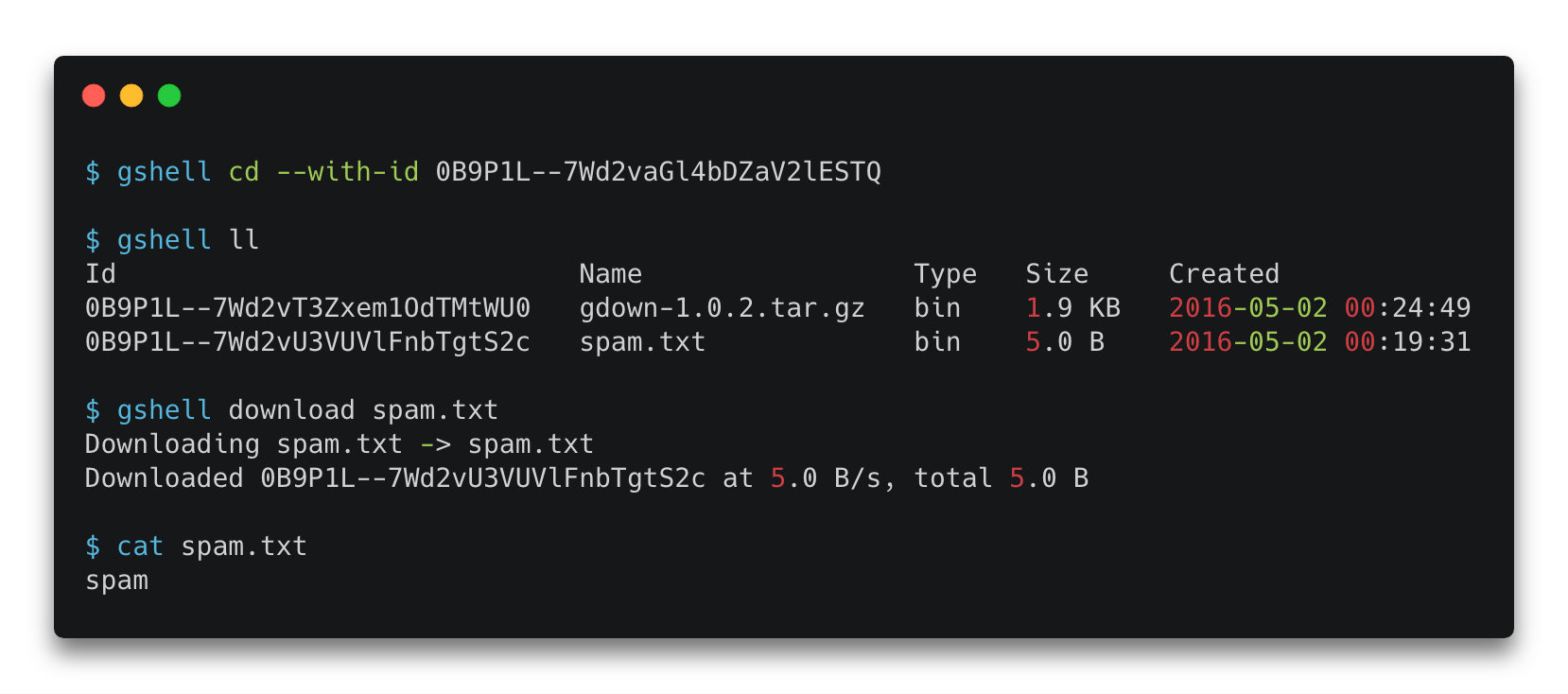
Security News
Research
Data Theft Repackaged: A Case Study in Malicious Wrapper Packages on npm
The Socket Research Team breaks down a malicious wrapper package that uses obfuscation to harvest credentials and exfiltrate sensitive data.

pip install gshell
gshell init # login to your google account
$ gshell info --with-id 0B9P1L--7Wd2vaGl4bDZaV2lESTQ
Id: 0B9P1L--7Wd2vaGl4bDZaV2lESTQ
Name: 20160502_gdown
Path: 20160502_gdown
Mime: application/vnd.google-apps.folder
Created: 2016-05-02 00:17:25
Modified: 2017-12-23 01:56:42
Shared: True
ViewUrl: https://drive.google.com/open?id=0B9P1L--7Wd2vaGl4bDZaV2lESTQ
$ gshell cd --with-id 0B9P1L--7Wd2vaGl4bDZaV2lESTQ
$ gshell pwd
20160502_gdown
$ gshell ll
Id Name Type Size Created
0B9P1L--7Wd2vT3Zxem1OdTMtWU0 gdown-1.0.2.tar.gz bin 1.9 KB 2016-05-02 00:24:49
0B9P1L--7Wd2vU3VUVlFnbTgtS2c spam.txt bin 5.0 B 2016-05-02 00:19:31
$ gshell download spam.txt
Downloading spam.txt -> spam.txt
Downloaded 0B9P1L--7Wd2vU3VUVlFnbTgtS2c at 5.0 B/s, total 5.0 B
$ cat spam.txt
spam
Usage: gshell [OPTIONS] COMMAND [ARGS]...
Options:
-V, --version Show the version and exit.
--help Show this message and exit.
Commands:
about show account status
cd change directory
download download file
info show file information
init initialize gshell
ll list files in detail
ls list files
mkdir make directory
open open current site on browser
pwd print current working directory
rm remove file
share share file
switch switch user
upload upload file
FAQs
Tool to handle google drive as shell
We found that gshell demonstrated a healthy version release cadence and project activity because the last version was released less than a year ago. It has 1 open source maintainer collaborating on the project.
Did you know?

Socket for GitHub automatically highlights issues in each pull request and monitors the health of all your open source dependencies. Discover the contents of your packages and block harmful activity before you install or update your dependencies.

Security News
Research
The Socket Research Team breaks down a malicious wrapper package that uses obfuscation to harvest credentials and exfiltrate sensitive data.

Research
Security News
Attackers used a malicious npm package typosquatting a popular ESLint plugin to steal sensitive data, execute commands, and exploit developer systems.

Security News
The Ultralytics' PyPI Package was compromised four times in one weekend through GitHub Actions cache poisoning and failure to rotate previously compromised API tokens.